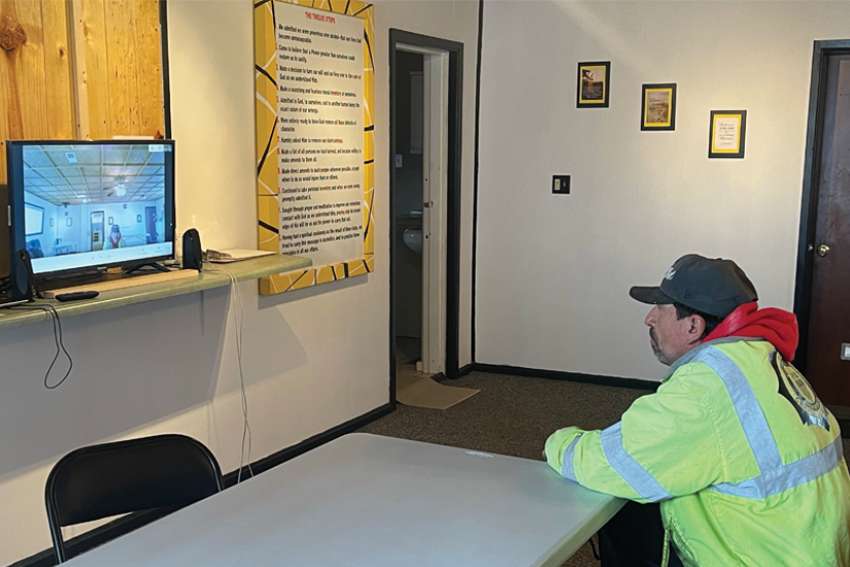It happens every time the economy veers off course and steamrolls over the plans of vulnerable families. So it’s no surprise to Catholic Family Services in Toronto that almost 20 months into a pandemic clients are queued up at the door as the weight of economic doom presses down on them.
“Lots of our clients, for sure, are worried about the government funding ending this week,” said CFS executive director Brenda Spitzer as government wage subsidies are on the chopping block with the economy slowly returning to a sense of pre-pandemic normalcy.
Spitzer was reacting to a new Credit Counselling Canada-CAMH (Centre for Addiction and Mental Health) study that found 38 per cent of Ontarians said their mental health has gotten worse since the start of the pandemic as a direct result of their financial situation. The study found:
- 34 per cent attributed mental health struggles to job insecurity;
- 27 per cent said their mental health was worse because of housing insecurity;
- 47 per cent complained about the effect household expenses were having on their mental health; and
- a third said credit cards and other forms of debt were overwhelming them.
Housing, debt, precarious work and the struggle with everyday expenses are part of what Catholic Family Services counsellors, therapists and social workers deal with in good times and bad, said Spitzer. But the COVID uptick of families in crisis has the non-profit agency patching Band-Aids on Band-Aids as clients have to settle for Zoom calls when they would normally get in-person meetings with follow-up.
“It’s not something that is suitable for all situations,” Spitzer said of the quick-access video counselling CFS is offering. “It’s certainly not something you would do for something acute or long-standing trauma. It would be more ‘What do I need to get through today? What do I need as a priority? How can I just cope?’ ”
The imbalance between a ballooning client list and a small social service agency has been made worse by the labour shortage.
“We’re not immune to having a shortage of labour. We’re seeing postings stay posted for a long time. It’s not a flood of applications, like we might normally have. That’s impacting us as well,” Spitzer said.
CFS counsellors tell Spitzer their clients have been coming in with concrete economic problems that are not easy to solve.
“I’ve been using the food banks and that helps,” a client with a full-time job told a CFS counsellor. “I’m worried about being evicted,” another said. “I am working hard, but it’s not enough to keep up. I want to be there for my kids,” said another.
There’s a divide among Catholic Family Services clients between middle-class families facing new and extraordinary stresses because of the pandemic and the working poor, said Spitzer.
“For these folks, the poverty is always an issue. So this would be less of a blip on their radar, because it’s always there,” Spitzer said.
The Catholic Family Services violence against women program has faced the most extraordinary stresses since early in the pandemic.
“We’ve certainly seen an increase in demand (for family violence counselling),” said Spitzer. “The uptick in violence, that’s been reported in lots of places. People are having to shelter at home with their partners. It’s harder to get away.”
But even the CFS’s marriage preparation courses are seeing pandemic effects.
“Lots of couples who are preparing for marriage are really struggling to find a home,” Spitzer said. “Most of them, first-time home buyers, are staying with their parents because they can’t afford to move out. That’s a sort of delay in launching. A lot of them are really grateful for family support, but struggling — because they need their own space and privacy. That’s a stress on the relationship.”
Spitzer observes that COVID has exposed the fragility of modern family life where people have fewer social and familial connections than may have been traditional.
“COVID has certainly amplified cracks — some of those things like social isolation,” she said. “You can see that most clearly with seniors. Part of that is cultural, for sure. The western way of the nuclear family with seniors shipped off, as opposed to more collectivist societies where you would be connected through larger family networks in different generations living together and supporting each other.”


